Friday, October 25, 2013
Posting #6-Adolf Hitler and the Nazi Party
Major Theme: The rise of fascism in Germany
The period from 1924 to 1929 is often as the 'golden age' of the Weimar Republic. German democracy seemed secure, the economy was showing promising signs of recovery, and reparations were no longer causing Franco-German antagonism (deep rooted ill-will). However, trouble was brewing under the surface: the German economic recovery was dependant on U.S loans; and many members of the middle class still harboured deep anger over the economic losses that they had suffered under the 'great inflation'. Another worrying sign for the future stability of the Weimar Republic was the election of Paul von Hindenburg, a hero of Kaiser Wilhelm's army, as president in 1925. Does this sound like a man who is bent on change, on introducing new ideas? Think of the Kaiser and what we said about the political landscape of Europe preWWI in class. What would the presidents view on democracy be?
An even bigger potential danger to Weimar democracy was lurking about in the shadows. His name was Adolf Hitler. His personal views, as mentioned in Mein Kampf (part of today's note), as very important into understanding the origins of WWII. How do the views laid down in Mein Kampf give us an understanding of why Germany went to war? To what extent to you believe the German people might have supported those views?
Hitler was born on April 20th 1889 in Branau-am-Inn, Austria, near the Austrian-German boarder. His father was a customs officer and his mother a traditional housewife. He attended private schools. After the death of his parents he moved to Vienna (1907) where he hoped to become a great artist. After several rejections from notable schools (some run by men who were Jewish) the most important of which was the prestigious Academy of Arts. He was never really down and out like some may have suggested, he was unemployed by choice, living on a large inheritance given to him by his parents. He visited the opera regularly and mostly hung out in expensive cafes, eating chocolate cake, drinking endless cups of coffee, and voicing his opinion to who ever would listen. By 1912 he was earning some money by selling a few drawings and paintings. in 1913 he fled across the boarder into Germany to avoid being conscripted into the Austrian army. When the first world war broke out he was in Munich, the capital of Bavaria, where he volunteered to join the German army. He had found his great two loves, the army and war. He served with distinction, being twice awarded the iron cross for bravery and was promoted to lance corporal.
On the Day that news came of the German defeat, Hitler was in hospital, recovering from a poison gas attack. He was utterly devastated and could not believe it. In July 1919, when he heard of the terms of The Treaty of Versailles, he decided to enter politics. His dream was to build a 'new Germany' under his own leadership, to overturn the Treaty and to establish Germany as a major European power. In 1919 he joined the NSDAP-National Socialist German Workers' Party. By 1920 he emerged as their leader. The early doctrine of the NSDAP called for a revision to the Treaty of Versailles, and aimed to replace democracy with a military dictatorship. To this end, Hitler organized a coup (an event to overthrow the government) designed to take control of Bavaria. The now called "Munich Beer Hall Putsch" of November 1923 as a failure, foiled by the loyalty of the German army and the local police force to the authorities. Hitler was jailed for five years on the charge of high treason yet only served 13 months in the comfortable surroundings of Landsberg prison. At this point his career seemed to be over but he used his time in the jail to write a new strategy for the Nazi party in Mein Kampf (my struggle). This was used as a bible for his followers. The party figured they would seize democratic power then destroy democracy 'from within'. Here are the four major points from this book:
. The destruction of the treaty of Versailles. This would allow Germany to rearm and recover lost territory.
. To gain territory or Lebensraum (livingspace) in Eastern Europe. This would involve a war with the USSR in order to defeat Russian Bolshivism.
. To include all German speaking people in the new 'Third Reich'. The focus would be those in the Sudetenland, Austria and Danzig.
. To create a racially pure German state what would be the most dominant power in Europe.
The two really NEW dimensions of Hitler's policy were a desire to create a racially pure Germany and a virulent obsession with the Jews. However, in all fairness to many Germans, few realized that these new ideas would lead to the extermination of European Jewry. In the beginning the Nazi party was only able to get 2% of the popular vote. From 1929-1933 views changed and they won many more seats, Hitler was on the rise and soon would become Chancellor, eventually declaring himself Fuhrer. It must have taken a very spectacular event to cause German political opinions to change so quickly in just four years. What was it that changed the voter's minds? Please respond to this posting by way of making comments on the article or answering the questions.
This posting is now open and will close Nov 22nd at 11pm.
The following students will participate in this posting: Fernando Q, Cameron P, Hayden P, Dale N, Megan Muxlow, Aly M, Matty M, Cameron L, Adam K, Jenny H
Required Reading: pages 129-138 in your text
Subscribe to:
Post Comments (Atom)

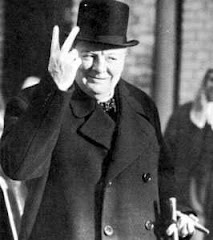
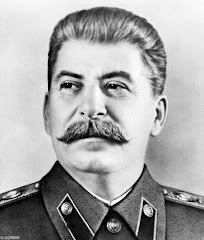
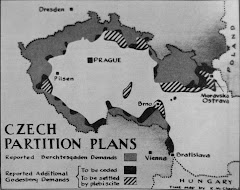
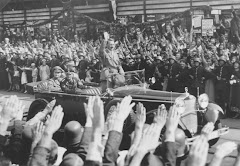

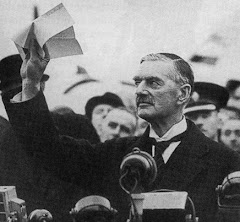
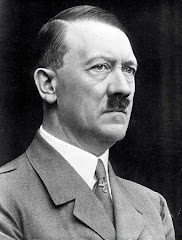




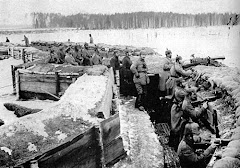


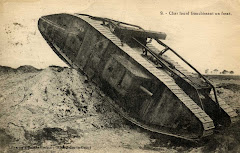



7 comments:
As stated in many articles about Hitler and the Nazi party Hitler had a way of persuading mass crowds. When Hitler fist his views he only got 2% of the populations vote. Later he changed his views and quickly gained the vote,in times of need the public was willing to try anything and I believe Hitler took advantage of that fact and abused the fact that they were desperate for success. After Hitler gained control he became very aggressive military wise he kept making "power" plays and that's what got him and Germany so close to ruling the world.
I agree with Hayden in the sense that Hitler had the power of persuasion. He definitely knew how to entice and appeal to an audience of people who all had different opinions and needs. But in this time in Germany, people needed food, jobs, money - things needed to keep a family running. After World War I, Germany did not have this, and Hitler promised to give it to them, and he did not disappoint. He almost completely got rid of unemployment in a few years, and he started industrializing Germany. This was what Hitler wanted - to better Germany. He did believe that Germans were superior to every other race. To him, Jews were scum and were ruining Germany. I do think that all he wanted to do was help Germany become flawless; the race that is sat ruling the world, and in his own, evil mind, invasion, war, and mass genocide was the way to do it.
As what Hayden and Aly are talking about how powerful Hitler can speak towards a crowd is out standing! I do agree with Hayden and Aly on this topic of Hitler, Hitler had a way with his words that made any crowed to rethink themselves which helped him in the long run on how he's votes increased in such a short amount of time. Also what help him was the audience he spoke in front of, how they were in need and wanted to see what he could do to help his country. What he did to help was industrialized Germany so if there were to be another war they could do a little more to help. Hitler didn't have the best back story though especially with his father, his father was never really a good father. Anyways overall the way he won his vote was because of how great he is when he talks to a big or small crowed of people and just knows how to impress this audience.
As what Hayden and Aly are talking about how powerful Hitler can speak towards a crowd is out standing! I do agree with Hayden and Aly on this topic of Hitler, Hitler had a way with his words that made any crowed to rethink themselves which helped him in the long run on how he's votes increased in such a short amount of time. Also what help him was the audience he spoke in front of, how they were in need and wanted to see what he could do to help his country. What he did to help was industrialized Germany so if there were to be another war they could do a little more to help. Hitler didn't have the best back story though especially with his father, his father was never really a good father. Anyways overall the way he won his vote was because of how great he is when he talks to a big or small crowed of people and just knows how to impress this audience.
i agree with everyone here. not only did hitler have a talent for speaking in front of crowds, he also had a strong position in the Nazi party. this gave him all the resources he needed to persuade the public that he would usher in a new era for Germany. he won respect in the Nazi party after writing his book mein kampf (my struggle) which was basically used as a bible for the nazis. the German economy was in a very difficult time and the government was failing to solve their problems which lead to radical decisions and hitlers rise to power.
In my opinion , Germans political views changed quickly in a matter of four years because Adolf Hitler intelligibly knew how to persuade and take more than needed. Adolf was intelligent in the sense that he knew how to take advantage of people to get what he wanted.Hitler gave his word to the desperate Germans. He promised to lower unemployment , industrialize Germany and so forth. At the time Hitler seemed to be the perfect leader due to his perseverance and determination. Although he unquestionably had other thoughts. Hitler didn't just want to strengthen Germany,he wanted to create a pure race and embrace revenge among nations to grasp superiority in Europe.Now the way I think about it,the Germans only saw the determined side of Hitler and not the evil side till further on. Therefore the desperate Germans trusted him to bring Germany back onto its feet. In his mind he wanted Germany to rise above from other nations.Without a doubt Adolf was a very intelligent devious man who respected no one and could not be trusted.
I believe that Hitler and the Nazi party always had a way of persuading large crowds. Hitler was an excellent speaker and could get most people to believe whatever he was talking about. He signed a document stating German would never go to war with Britain which was a lie. When Hitler first shared his views he only got 2% of the populations vote. He changed his views and quickly gained the populations vote. At this time Germany was struggling to survive and the population times was willing to try anything to get back to good economic times. Hitler defiantly took advantage of that fact that the people were desperate. Hitler did do good things such as getting Germany’s economy back and running but after that Hitler gained control and became very aggressive and continued to make “power” plays and that are what got him and Germany so close to ruling the world.
Post a Comment